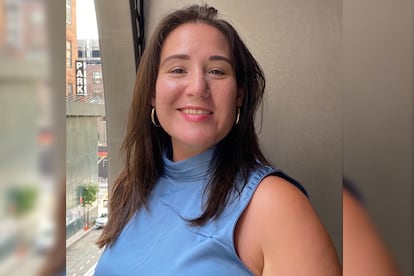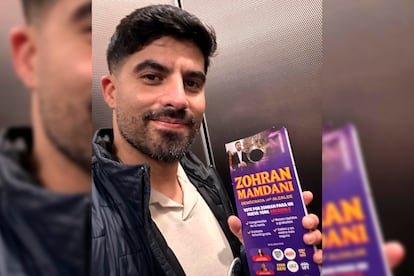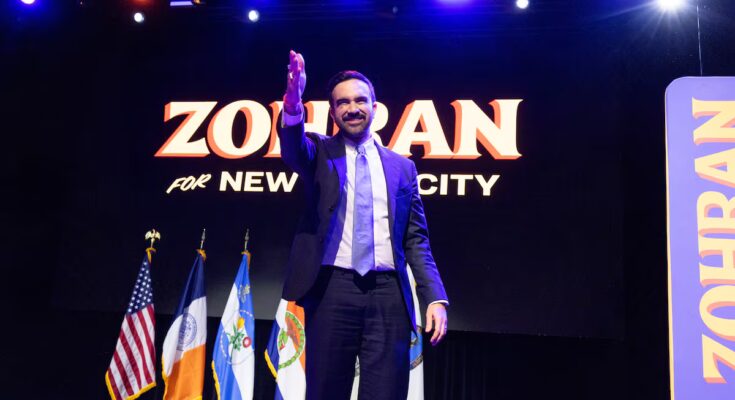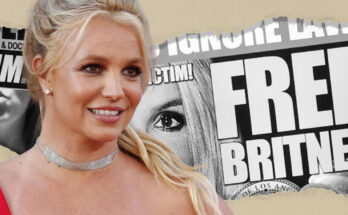During the fall days of Zohran Mamdani’s campaign, Carlos Calzadilla-Palacio, a 28-year-old Cuban-American, said in a video that he didn’t expect New York’s youngest mayoral candidate to force them to watch Soviet cartoons, or to jail all his political opponents, as the Havana regime does with its dissidents. I was trying to explain that, within a community embarrassed by concepts such as socialism or communism, there are people who are not afraid of the proposals of a candidate demonized because he is young, because he is Muslim and for having declared himself a socialist.
“Growing up in a Cuban, communist or socialist family is something that is talked about a lot, because of the trauma that the Castros and their government caused, because of the elimination of basic freedoms of expression and democracy,” says Calzadilla-Palacio. “That’s why I’ve always had a strong feeling for social justice, but to some people anything that sounds like that is socialism or communism.”
Recently, Calzadilla-Palacio visited Holguín, the city in eastern Cuba where his parents were born. He wanted to be reunited with his grandparents and uncles and saw people on the streets desperately trying to leave the country. He knew what it meant to live with four or five blackouts a day and felt that the neighbors were sad, probably for the same reasons that in 1992, in the midst of the Special Period crisis, his parents emigrated to Spain, where he was born. When he was six months old, the family went to Florida. Calzadilla-Palacio grew up in Miami, knowing firsthand the pain of exile and the incalculable damage it brings to a community that politics has taken its toll on.
Until the age of 17 he wanted to play professional football and had little faith in politicians. At the time he was playing in Europe, but one day, during his senior year of high school, he heard a senator say a phrase that he still remembers today. “No one who works 40 hours a week should live in poverty.” It was about Bernie Sanders. He then returned to the United States, abandoned sports, began university studies and became a volunteer for the Democratic leader of Vermont.
More than a decade later, living in New York and becoming president of the Brooklyn Young Democrats, Calzadilla-Palacio was part of the 34-year-old young politician’s historic campaign. On more than one occasion he was seen alongside Mamdani. He knocked on the doors of socialists and created content for social networks, contributing at least 10 million views to the election of the most media-focused mayor of the moment.
When on November 4 New Yorkers confirmed in their votes what had been a certainty in the spirit of the city for days, part of the Cuban community in the United States looked at the results with disgust. As if from the future, messages began to circulate warning New York voters that they had made a mistake, that they had dug their own grave by electing a socialist and that the Big Apple, cradle of Wall Street, would soon become an unlivable communist bastion. As Fidel Castro did with his Revolution, these voices warned, egalitarianism would lead them to poverty.
His theories were confirmed, among other things, by a photograph taken from Mamdani’s pocket, where he appears, smiling, with Havana officials at the United Nations last year. Many Cubans also get goosebumps when the politician quotes the socialist Eugene V. Debs or Martin Luther King Jr., from whom he constantly takes a phrase from his speech given in 1961: “Call it democracy or call it democratic socialism. There must be a better distribution of wealth for all of God’s children in this country.”
Isabel Anreus, the daughter of a Cuban immigrant who came to the United States in 1960 and now lives in Brooklyn as a teacher, disagrees with those who see Mamdani as a “totalitarian communist.” “It’s not radical to want to live in an affordable city,” he insists. “Mamdani is leading New Yorkers towards a 21st century full of dignity and transparency, towards a future we can finally believe in.”

The young Cuban-American was the protagonist of a video Zohran Latinsin a city where about 1.7 million of the approximately 3.2 million Latinos are eligible to vote. A Hispanic Federation poll found days before the election that 48% of registered Latinos would vote for Mamdani, compared to 24% who would vote for Andrew Cuomo and 14% for Curtis Sliwa. Among the biggest concerns were cost of living, access to housing and safety. Added to this is the fear of a community that feels the weight of Donald Trump’s immigration policies, and to which Mamdani not only spoke in Spanish, but said that the city will not be the gateway to the Immigration and Customs Enforcement Service.
Socialism, the concept that Castroism has taken over
When Mamdani focused on New York politics during his campaign, the country demanded that if he aspired to become mayor of one of the world’s largest cities, he channel his speech and address issues beyond the Big Apple. Thus, by putting his back against the wall, they almost forced him to speak openly about the regimes of Cuba and Venezuela, countries that were evidently not only far from his home in Queens, but also from his knowledge.
At the podcast premiere The momentJorge Ramos and his daughter Paola interviewed Mamdani, warned him against the fear that led him to define himself as a “democratic socialist” and asked him to express his opinion on the Cuban ruler Miguel Díaz-Canel and the Venezuelan Nicolás Maduro, about whom it was clear that Mamdani knew very little. Of the former he said, “I haven’t thought much about Miguel Díaz, to be honest. I think mostly about these five boroughs and how we can really bring affordability to New Yorkers.”
It was the little he could say. Cuba is losing importance on the world political table. The Cuban Revolution appropriated the concept of socialism, adapted it to its needs, fascinated the collective imagination and ended up transforming it into a black hole into which few seem to want to look. The island that Castro declared first socialist, and then communist, is currently experiencing a profound crisis that forces its population to live with a lack of food, electricity, water and basic necessities.
Michael Bustamante, professor at the University of Miami and author of the book Cuban memory warsassures that Cuban-American politicians of the Republican Party, and Republicans in general, “have become experts in exploiting the accusation of ‘socialist’, using it as a discursive weapon to attack any proposal that comes from the Democratic Party, or even from its more progressive wing.”
“Mamdani can be criticized for many things, such as his lack of experience, the cost of his proposals, which will not facilitate the construction of housing, which is what is really needed to lower the cost of rents. One can also criticize the movement in favor of democratic socialism in the United States for having wrong or simplistic positions on the reality of today in Cuba, but Mamdani has never proposed that the state take control of almost all modes of production of the city’s economy, as happened under socialism. Cuba” or eliminate them. multi-party elections, Bustamante insists. “To suggest that his election as mayor will inevitably lead to a drift towards ‘communism’ is, to put it mildly, naive and, in many cases, deliberate manipulation.”
Alejandro Almaguer García, a 35-year-old Cuban, knocked on more than 200 doors seeking support for Mamdani’s campaign, especially in Harlem (Manhattan) and Jackson Heights (Queens). The man, who was born on the island, understands that the word “socialism” generates rejection in many, “because they associate it with an authoritarian and dysfunctional model of government”, he believes. However, he states, “the socialism proposed by Mamdani does not imply that the state controls everything, but refers to a government approach aimed at guaranteeing fundamental rights, improving the material conditions of the population and being truly representative of the interests of the people, not just of an economic elite”.

However, García notes that the majority of New Yorkers did not vote for Mamdani because he was a socialist, “but because of his constant attention to the cost of living and his ability to communicate how his proposals could alleviate it.” “His victory also shows that the word ‘socialism’ is no longer so scary. In fact, we see how Trump avoids using it and prefers to say ‘communist’, because ‘socialist’ has lost its power as an insult.”
A new generation of Cuban-Americans?
Carlos Calzadilla-Palacio, for his part, states that he is not “afraid” of the word socialism, but of “dictatorship”. “Many people associate communism or socialism with dictatorship, but no one talks about fascism,” he says. “The problem is the lack of democracy, and under the Trump administration, we are experiencing something much more similar to what Cubans have experienced in Cuba.”
Several Cuban-Americans consulted by EL PAÍS agree that the loss of fear of voting for a socialist seems to be something generational. Danny Valdés, co-president of the Solidarity with Cuba Working Group of the Democratic Socialists of America (DSA) organization in New York, believes that “the Cuban-American political identity is changing.” “For many years, the predominant voices in our community have been those of those who left Cuba during the first and most painful periods of the Revolution. Their experiences are real and continue to influence many people’s understanding of Cuba. But they are no longer the only story.”
The majority is grateful to live in the United States, wants to see a “free Cuba” and does not believe that Washington’s economic embargo is the solution to the problems that the Havana government has been creating for decades. They reject the status quo And, faced with a system like the one they live in, which keeps them trapped economically and which daily humiliates the communities to which they belong, they look for an alternative.
“For many young people, socialism is not an abstract idea. It is simply the term that encompasses policies that guarantee basic dignity: housing, healthcare, public energy and a just economy,” says Valdés. “The young Cubans who supported Mamdani are responding to the material reality in which they live. But this change is not limited to Cuban Americans. It is widespread among young Americans trying to build their lives in a system that constantly pushes them to the limit. It is not so much about adopting a new ideology, but rather about choosing a politics willing to fight for ordinary people. Socialists offer this and voters respond.”



